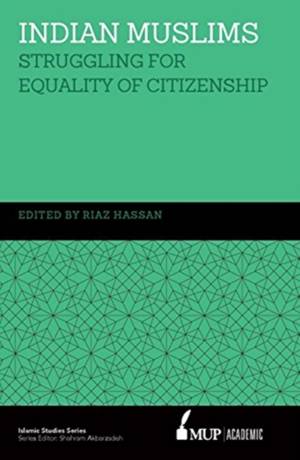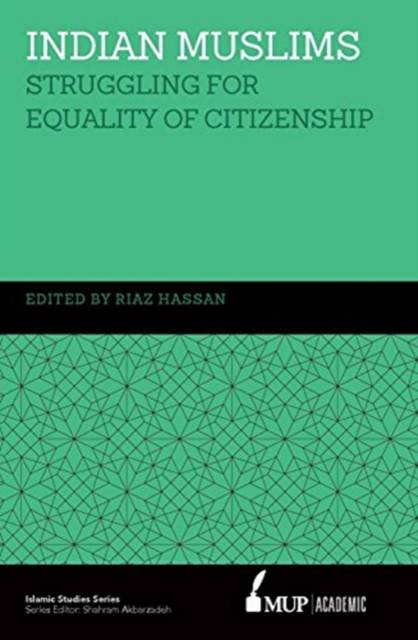
- Afhalen na 1 uur in een winkel met voorraad
- Gratis thuislevering in België vanaf € 30
- Ruim aanbod met 7 miljoen producten
- Afhalen na 1 uur in een winkel met voorraad
- Gratis thuislevering in België vanaf € 30
- Ruim aanbod met 7 miljoen producten
Zoeken
Omschrijving
Research shows that Indian Muslims experience higher levels of development and equity deficits. Indian Muslims are also predicted to become the largest Muslim population in the world by 2050. This increase in numbers might exacerbate their relative deprivation, creating a disjunction between India's constitutional promises of 'equality of opportunity' for citizens of a secular democracy--including for minorities--and the existential reality. This will create social and political conditions that could undermine the stability of the country's democracy and make Indian Muslims a security threat, which would have not only national but also global ramifications. This book examines the struggle for equality of citizenship of Indian Muslims in light of the release of the Sachar Committee report of 2006, which sparked widespread awareness of socioeconomic disparity and exclusion of religious minorities in India, especially Muslims. The contributors are some of the most eminent social scientists in the fields of applied economics, politics, sociology and demography who work on Indian issues.
The Indian state and its political infrastructure have been relatively successful thus far in countering the challenges presented by the diversity of its population. India therefore has the capacity and the ability to deal with these new challenges, given the political and collective will.
The Indian state and its political infrastructure have been relatively successful thus far in countering the challenges presented by the diversity of its population. India therefore has the capacity and the ability to deal with these new challenges, given the political and collective will.
Specificaties
Betrokkenen
- Auteur(s):
- Uitgeverij:
Inhoud
- Aantal bladzijden:
- 277
- Taal:
- Engels
- Reeks:
Eigenschappen
- Productcode (EAN):
- 9780522870725
- Verschijningsdatum:
- 17/10/2016
- Uitvoering:
- Hardcover
- Formaat:
- Genaaid
- Afmetingen:
- 142 mm x 217 mm
- Gewicht:
- 500 g

Alleen bij Standaard Boekhandel
+ 180 punten op je klantenkaart van Standaard Boekhandel
Beoordelingen
We publiceren alleen reviews die voldoen aan de voorwaarden voor reviews. Bekijk onze voorwaarden voor reviews.











